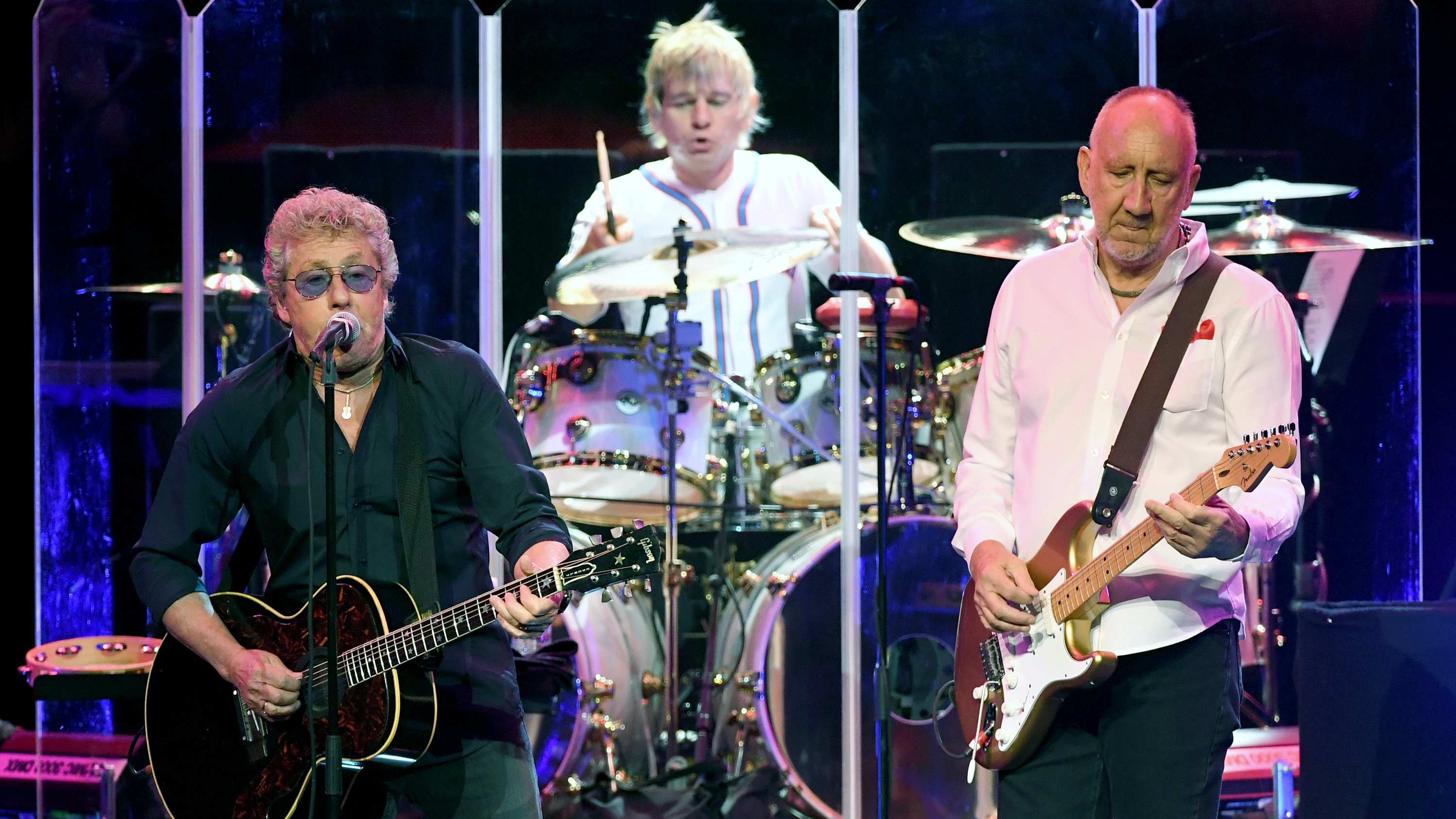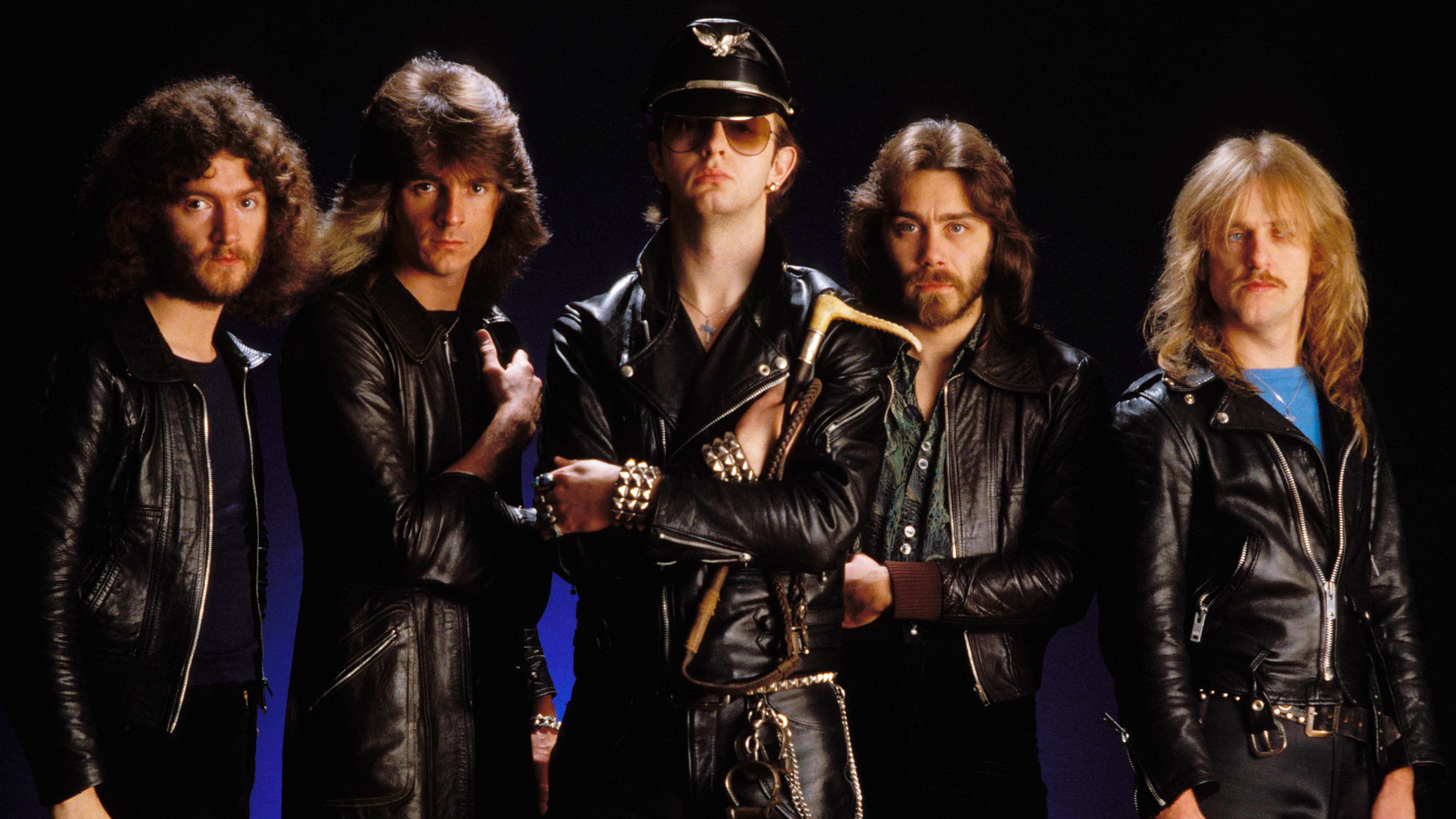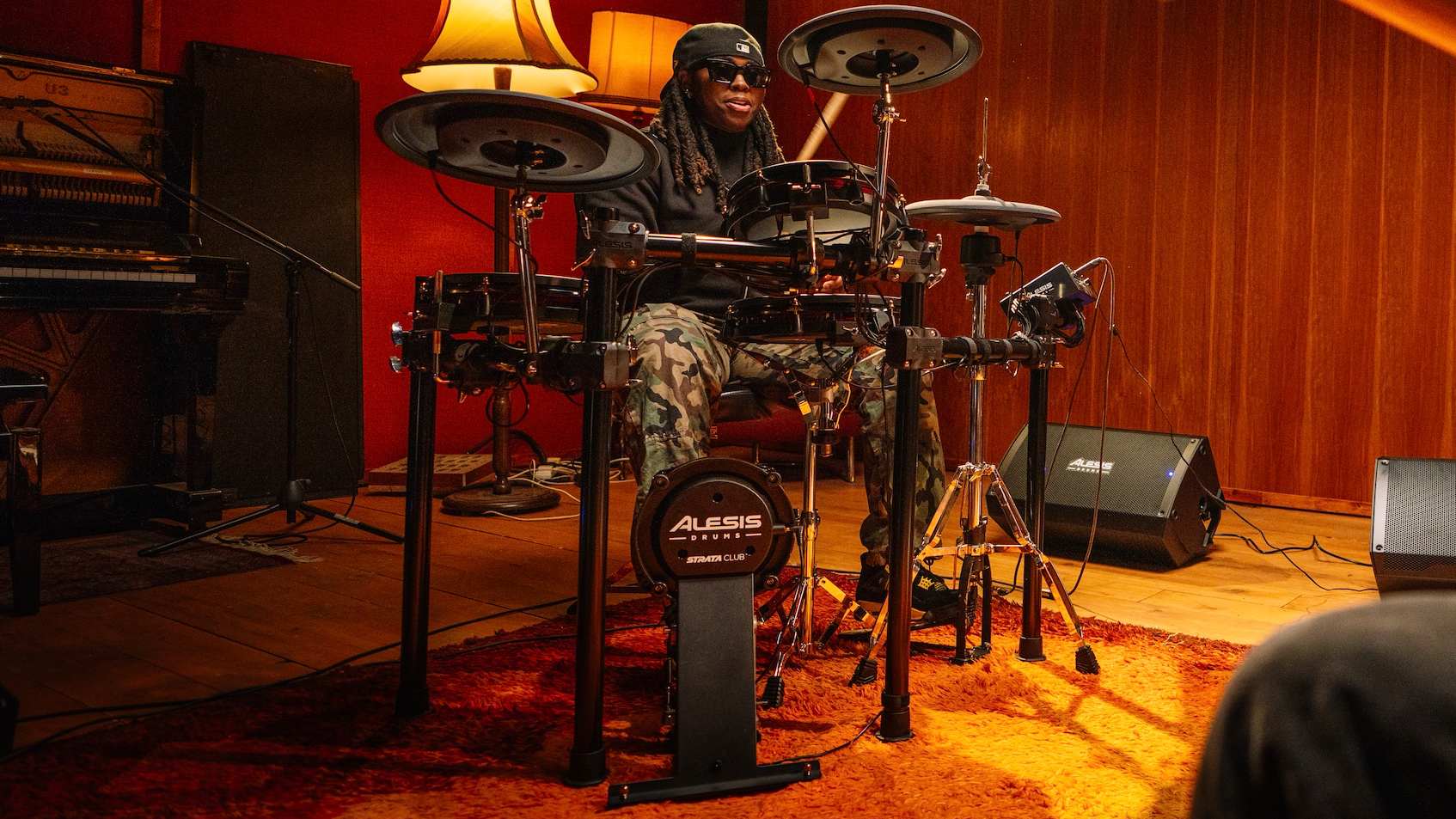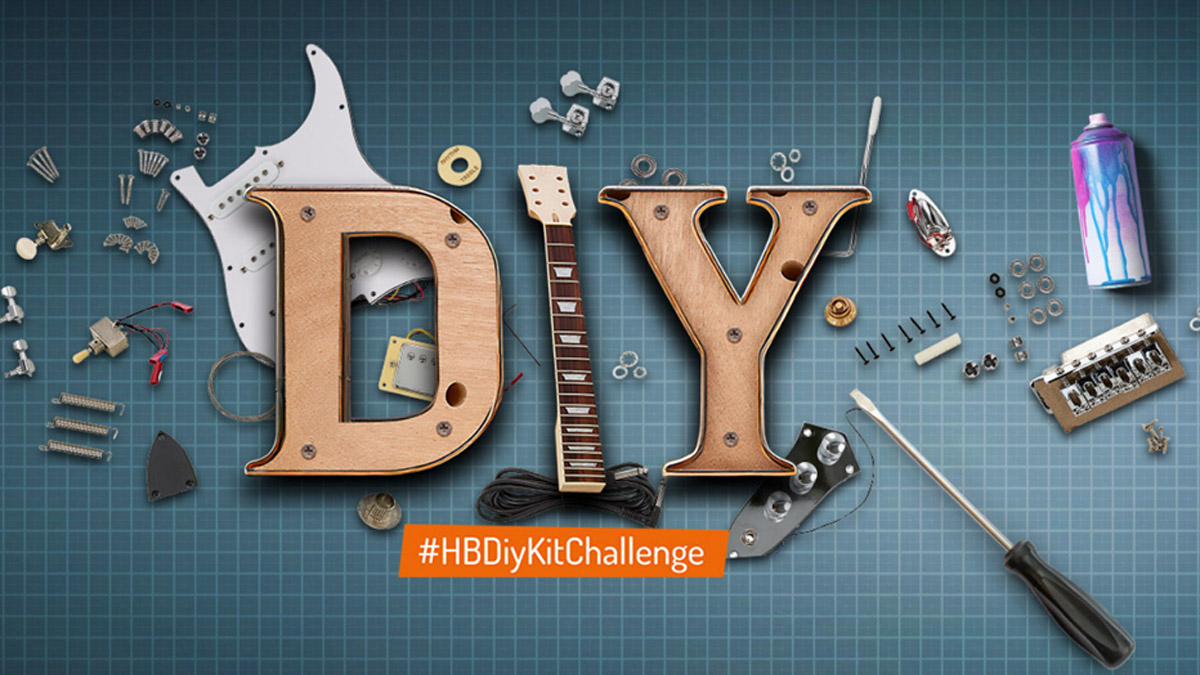William Tyler: “When I’m playing guitar, I’m really in my own skin in a way that I don’t feel very often”
The innovative US guitarist discusses his modern instrumental masterpieces

After reinvigorating instrumental Americana on Modern Country, William Tyler is now setting his eyes on the sunset with his acoustic-led latest, Goes West...
Nashville native William Tyler unveiled “his eulogy for a dying rural America” Modern Country in 2016. A record of instrumental, electric guitar-led pieces, it documented a blend of rusting rural scenes and peaceful nowheres without uttering a word. Which is ironic, given that Tyler’s roots lie in the innovative acoustic work of American primitive players like John Fahey and Leo Kottke.
“To me every album is a way of changing the conversation about instrumental music,” says Tyler. “A lot of the songs I had for Modern Country were more like themes. I thought there were some things we could pull from that that weren’t just solo acoustic guitar reference points… Bill Frisell and Ry Cooder and 70s soundtracks, stuff like that.”
I was imagining songs as piano pieces written on the guitar
Regardless of the motivations, it connected in a big way, cementing a place on countless end-of-year round-ups in the process. “It was a breakout,” he acknowledges.
“I saw it being that way because it was a very high-fidelity, arranged record and about as commercial as I could make instrumental music, not that that’s ever the motivation…”
It goes without saying that it’s pretty difficult to make the commercial tag stick to a career instrumentalist, but lest there be any doubt, Tyler’s phenomenal new acoustic-centric album Goes West scraps that successful formula, changing the conversation yet again.
This time he’s channelling the inspiration found in the US’ great city of dreamers - LA - while still reappraising the US’ national character, in particular, the pioneer spirit. There were practicalities at play, too.
Get the MusicRadar Newsletter
Want all the hottest music and gear news, reviews, deals, features and more, direct to your inbox? Sign up here.
“I wanted to make a record that was more personal and easier to present live in a solo context,” admits Tyler.
“But there’s an immediacy and an intimacy to the acoustic guitar and, frankly, as much as I play electric, I don’t consider it to be my main instrument at all. The way you approach acoustic and electric guitar is very different, especially when you’re playing fingerstyle and with open tunings. There’s a lot of possibility in it that I find really inspiring. I was imagining songs as piano pieces written on the guitar.”
However he defines it, Tyler’s playing is hard to rival. He has a manner of combining complex fingerstyle flourish with achingly beautiful melody lines that are both fresh and mournful. It’s like the sound of death and new beginnings rolled into one - an appropriate reflection of a world on a knife edge. There’s also an ambition to his writing but it does not sway into grandstanding. It recalls the movements and flow of classical music.
“I consider myself more as a composer who plays guitar than a guitar player,” he says at one point - the sort of thing we normally scoff at, but from Tyler it’s not a boast. “I feel like my acumen is still strongest in writing and not even necessarily in execution - and I don’t improvise as much as a lot of people do.”
There’s still a sense that the guitar is an instrument of accompaniment - the engine of the song - but not necessarily the song itself
The acoustic guitar’s standing as the instrument of the people is solid. But that doesn’t mean that the music played on it has to be dull. Instrumentals are really only limited by the writer’s imagination, so it’s inspiring to hear a self-taught acoustic player who’s unafraid to explore that influence.
“It is a conversation I’ve had a lot over the years, considering my background in Nashville,” says Tyler.
“There’s a respect for guys like Fahey, but there’s still a sense that the guitar is an instrument of accompaniment - the engine of the song - but not necessarily the song itself. It’s still pretty rare to see people get out there and play guitar and not sing. I’m not trained in that [classical or jazz] world, but I definitely identify with it more than I would with the singer-songwriter world, for instance.”
Goes West feels like a record you will return to again and again. Another Nashville link, Duane Eddy, once told this writer he was “a firm believer that the hit instrumental can happen at any time” and, while Tyler’s constructions are at the other end of the spectrum to the King of Twang’s, there’s a truth in that.
“For me, the virtue of making instrumental music is that it can be about almost anything,” agrees Tyler. “It just seems to connect with people in the way I connect to it and it’s really pure. When I’m playing it, I’m really in my own skin in a way that I don’t feel very often.”
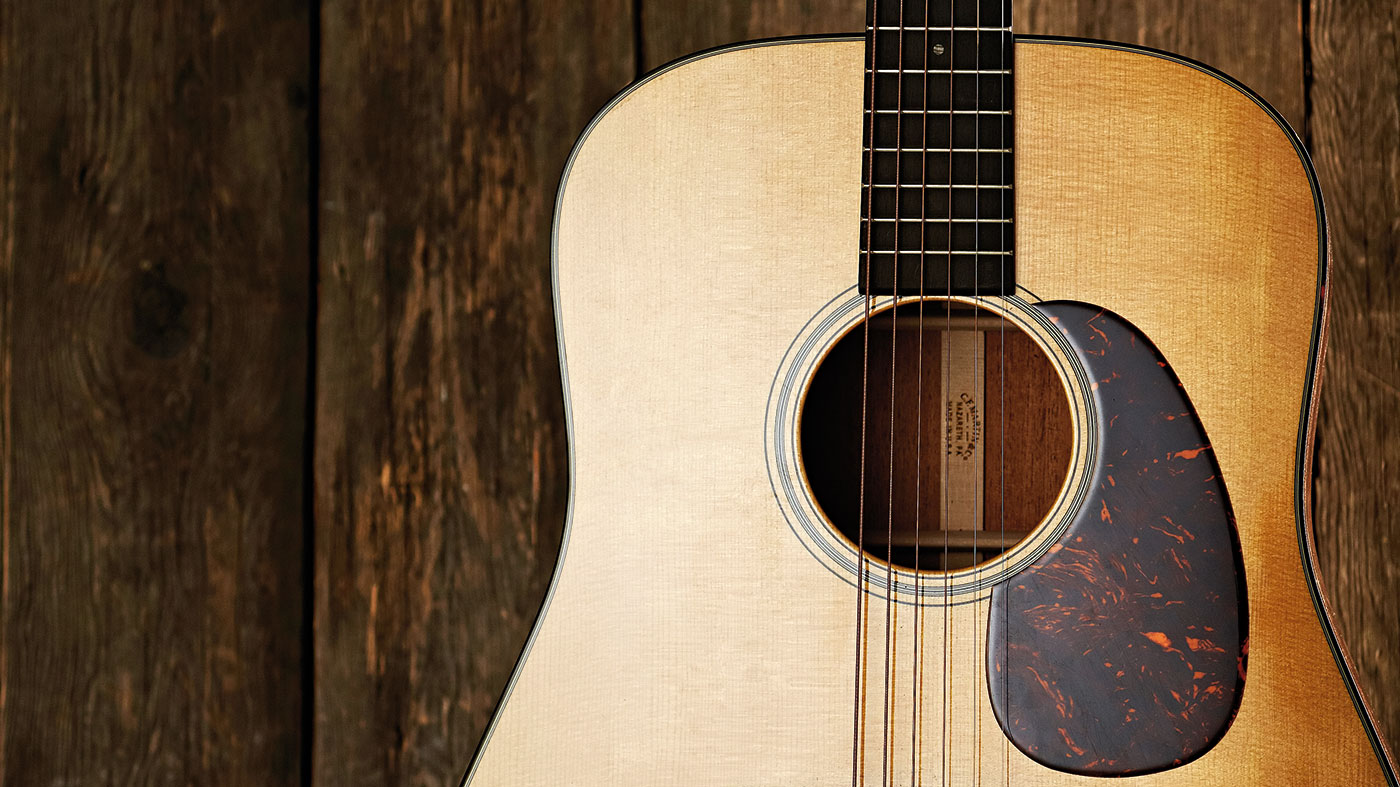
The family tone
The Martin at the heart of Tyler’s sound
“The only acoustic guitar that I really play belonged to my late uncle,” Tyler tells us. “It’s a 1950s D-18 Martin. I inherited it from him 10 years ago and it’s become my main instrument. Martins are definitely my favourite and I’m in the market to buy a D-28.
“I also have a B-25 Gibson I inherited from my father, which was like his first guitar and the guitar he grew up playing. He very generously and ceremonially passed it on to me when I turned 21 - and that was the guitar I learned to play fingerstyle on.
“Taking one on tour, it’s like deciding who you feel more sensitive about: your father or your uncle. I feel more comfortable travelling with the Martin. The Gibson still feels like my father’s guitar that I just have.”
Matt is a freelance journalist who has spent the last decade interviewing musicians for the likes of Total Guitar, Guitarist, Guitar World, MusicRadar, NME.com, DJ Mag and Electronic Sound. In 2020, he launched CreativeMoney.co.uk, which aims to share the ideas that make creative lifestyles more sustainable. He plays guitar, but should not be allowed near your delay pedals.



